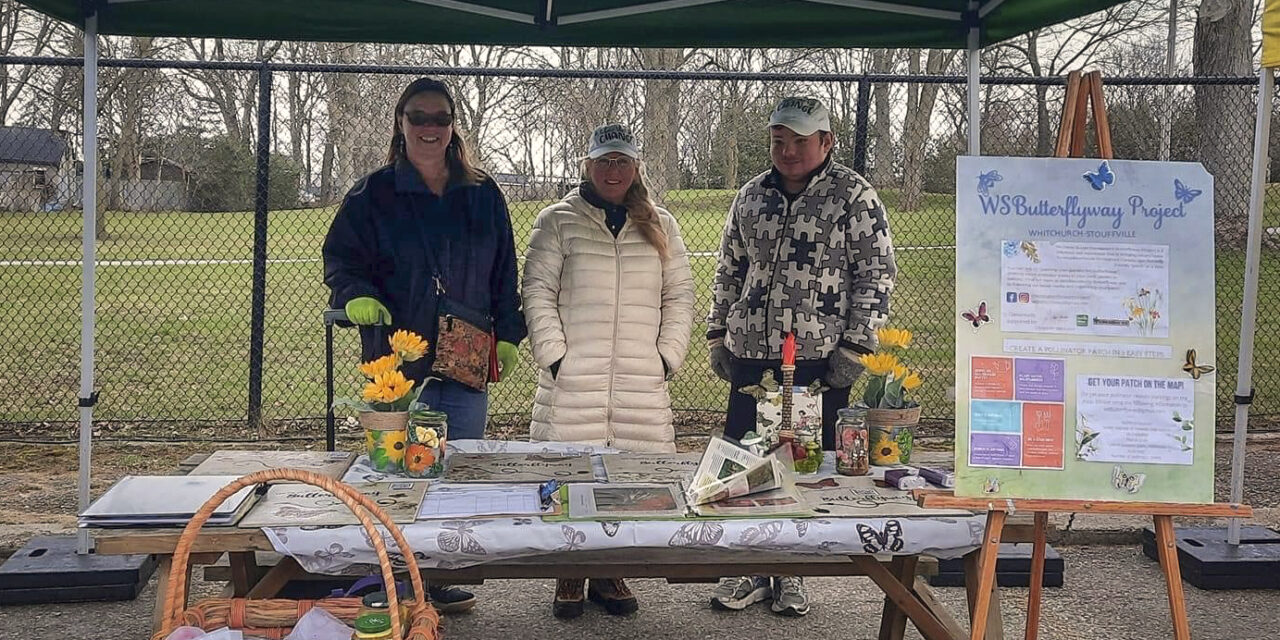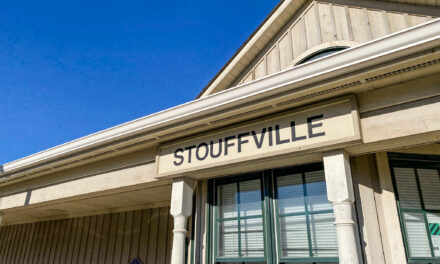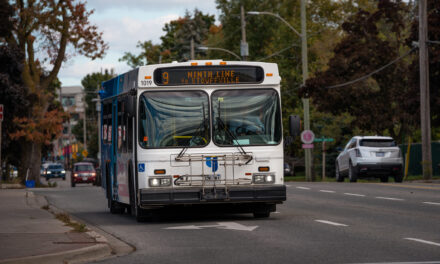- The Whitchurch-Stouffville Butterflyway Project recently launched its Native Garden Kit giveaway.
- Seven kits are available to eligible Stouffville teachers at schools willing to accommodate a future garden space.
- Each kit will include 18 native species ready to be planted, sourced from Native Plants in Claremont.
- Kits are being offered on a first-come, first-served basis.
- Plants will be available for pick up at the Stouffville Market on May 25, 2024.
- Those looking to participate or obtain further information can email wsbutterflyway@gmail.com.
Bullet Point News was pleased to welcome back Micole Rubinoff, who co-founded Stouffville’s Butterflyway Project with Devra Ranieri. Both are excited about the program’s potential: “We know there are some schools looking into putting in a pollinator garden, and this way we can supply the plants for them,” Rubinoff offered. “The added education aspect is also so important, and these new gardens would further add to the butterflyway we are trying to create across Stouffville.”
Butterflies and other pollinators can only fly so far before needing rest, food, and water, and the WS Butterflyway Project focuses heavily on supporting them. “If we have enough patches of native plants, then we are helping the pollinators get from one place to the next,” Rubinoff explained. “It’s that simple.”
Beyond teachers and schools, other organizations that meet eligibility criteria can also request garden kits. Rubinoff mentioned Scout groups, as an example, who could possibly team up with a local business to install a garden on their property. “We don’t want them to go to an individual residence; instead, we would love to see them in public spaces. Anyone interested is welcome to email us to discuss eligibility.”
The kits are just the most recent effort from the WS Butterflyway Project and Rubinoff, who helped lead the push to see Stouffville declared a Bee City and speaks passionately about threats stemming from dwindling pollinator populations. “They pollinate all our plants and food crops…and it scared me when I heard of their dwindling numbers,” she recalled. “That’s our food, that’s our ecosystem…It’s such a basic thing, and it’s so easy to help: just plant the right things in your garden.”
Rubinoff also highlighted shrinking monarch butterfly colonies, which have fallen to some of the lowest numbers on record. “People need to understand why this is so important,” she told us. “You spray your weeds and you grow a lawn, you’re killing things, and pollinators struggle to survive. We need to start thinking of our gardens as an ecosystem that we have control over and responsibility for.”
Kids are very excited about all of this, according to Rubinoff, and any added student education can provide real future dividends: “If they understand the importance of doing this now, then, when they start gardening as they grow older, they will know what they can do to help.”
The WS Butterflyway Project is also hopeful to connect educators and other program leaders with Bee Ambassadors, who offer free pollinator education to classrooms and groups. They provide presentations both virtually and in person and tailor material as appropriate for Junior Kindergarten through Grade 6 students. Interested parties can learn more and register here.






Thank you so much for this wonderful article. My cofounder, Devra Ranieri, and myself will also be giving away plants and garden signs to anyone interested, at the Stouffville Market in May, all thanks to the support of the Stouffville Legacy Fund.